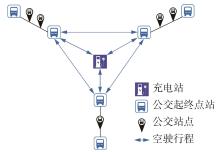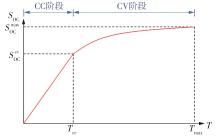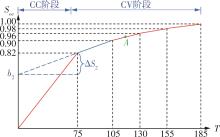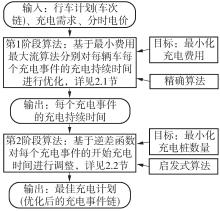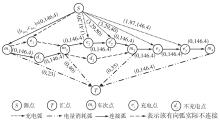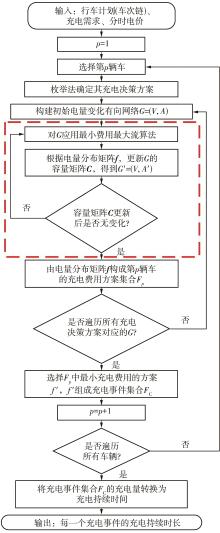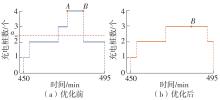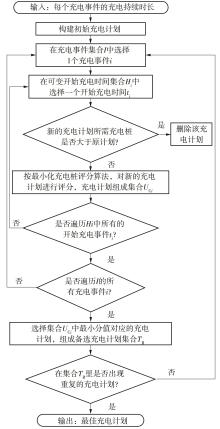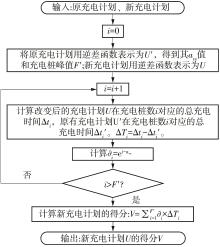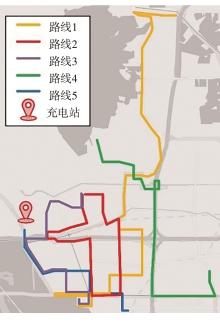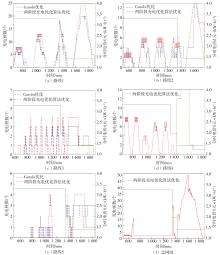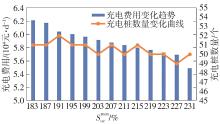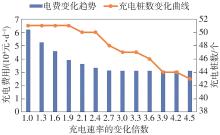| 1 |
ZHOU Y, MENG Q, ONG G P .Electric bus charging scheduling for a single public transport route considering nonlinear charging profile and battery degradation effect[J].Transportation Research Part B:Methodological,2022,159:49-75.
|
| 2 |
王玉生,张庆泽 .“双碳”目标下电动公交充电站优化布局研究[J].科学决策,2021(10):112-124.
|
|
WANG Yu-sheng, ZHANG Qing-ze .Research on the optimal layout of electric bus charging stations under the “dual carbon”goal[J].Scientific Decision Making,2021(10):112-124.
|
| 3 |
姜岚清,张勇 .电动公交车线路和充电设施及策略规划方法研究[J].山东科学,2019,32(6):49-61.
|
|
JIANG Lan-qing, ZHANG Yong .Research on route and charging facilities and strategic planning methods for electric buses[J].Shandong Science,2019,32(6):49-61.
|
| 4 |
CHEN Z B, YIN Y F, SONG Z Q .A cost-competitiveness analysis of charging infrastructure for electric bus operations[J].Transportation Research Part C:Emerging Technologies,2018,93:351-366.
|
| 5 |
KUNITH A, MENDELEVITCH R, GOEHLICH D .Electrification of a city bus network-an optimization model for cost-effective placing of charging infrastructure and battery sizing of fast-charging electric bus systems[J].International Journal of Sustainable Transportation,2017,11(10):707-720.
|
| 6 |
XYLIA M, LEDUC S, PATRIZIO P,et al .Locating charging infrastructure for electric buses in Stockholm[J].Transportation Research Part C:Emerging Technologies,2017,78:183-200.
|
| 7 |
孙宇乐 .电动公交车充电站规划和充电策略研究[J].电工技术,2022(20):128-132.
|
|
SUN Yu-le .Research on the planning and charging strategy of electric bus charging stations[J].Electric Engineering,2022(20):128-132.
|
| 8 |
肖白,朱珈汛,姜卓,等 .考虑车辆充电调度机制的电动公交车充电站规划[J].电力自动化设备,2022,42(1):148-155.
|
|
XIAO Bai, ZHU Jia-xun, JIANG Zhuo,et al .Planning of electric bus charging stations considering vehicle charging scheduling mechanism[J].Electric Power Automation Equipment,2022,42(1):148-155.
|
| 9 |
BAO Z Y, LI J P, BAI X H,et al .An optimal charging scheduling model and algorithm for electric buses[J].Applied Energy,2023,332:120512.
|
| 10 |
LIU K, GAO H, LIANG Z,et al .Optimal charging strategy for large-scale electric buses considering resource constraints[J].Transportation Research Part D:Transport and Environment,2021,99:103009.
|
| 11 |
LEOU R C, HUNG J J .Optimal charging schedule planning and economic analysis for electric bus charging stations[J].Energies,2017,10(4):483.
|
| 12 |
ZENG Zi-ling, WANG Shuai-an, QU Xiao-bo .On the role of battery degradation in en-route charge scheduling for an electric bus system[J].Transportation Research Part E:Logistics and Transportation Review,2022,161:102727.
|
| 13 |
蔡子龙,束洪春 .分时电价模式下电动公交快速有序充电策略[J].电工技术学报,2020,35(s2):544-555.
|
|
CAI Zi-long, SHU Hong-chun .Rapid and orderly charging strategy for electric buses under the time of use electricity pricing model[J].Transactions of China Electrotechnical Society,2020,35(s2):544-555.
|
| 14 |
李斌,刘畅,陈慧妙,等 .基于混合整数规划的电动公交车快速充电站有序充电策略[J].电网技术,2016,40(9):2623-2629.
|
|
LI Bin, LIU Chang, CHEN Hui-miao,et al .Ordered charging strategy for electric bus rapid charging stations based on mixed integer programming[J].Power System Technology,2016,40(9):2623-2629.
|
| 15 |
武小梅,冯琪劲,严干贵,等 .基于双层优化的电动公交车有序充电策略[J].电网与清洁能源,2021,37(1):119-126.
|
|
WU Xiao-mei, FENG Qi-jin, YAN Gan-gui,et al .Ordered charging strategy for electric buses based on double layer optimization[J].Advances of Power System & Hydroelectric Engineering,2021,37(1):119-126.
|
| 16 |
周丹,任志伟,孙可,等 .复杂运营环境下快充型公交充电策略优化方法[J].储能科学与技术,2020,9(1):195-203.
|
|
ZHOU Dan, REN Zhi-wei, SUN Ke,et al .Optimization method for fast charging bus charging strategy in complex operating environment[J].Energy Storage Science and Technology,2020,9(1):195-203.
|
| 17 |
ZHANG Le, WANG Shuaian, QU Xiaobo .Optimal electric bus fleet scheduling considering battery degradation and non-linear charging profile[J].Transportation Research Part E:Logistics and Transportation Review,2021,154:102445.
|
| 18 |
MONTOYA A, GUÉRET C, MENDOZA J E,et al .The electric vehicle routing problem with nonlinear charging function[J].Transportation Research Part B:Methodological,2017,103:87-110.
|
| 19 |
WANG Yusheng, HUANG Yongxi, XU Jiuping,et al .Optimal recharging scheduling for urban electric buses:a case study in Davis[J].Transportation Research Part E:Logistics and Transportation Review,2017,100:115-132.
|
